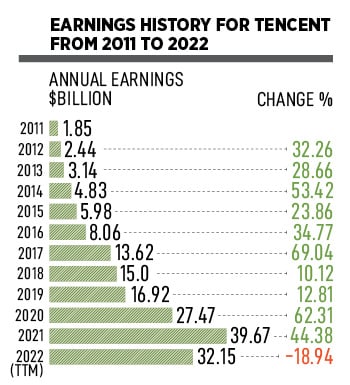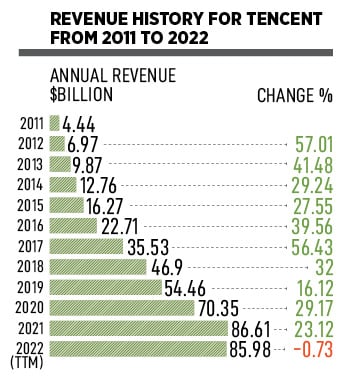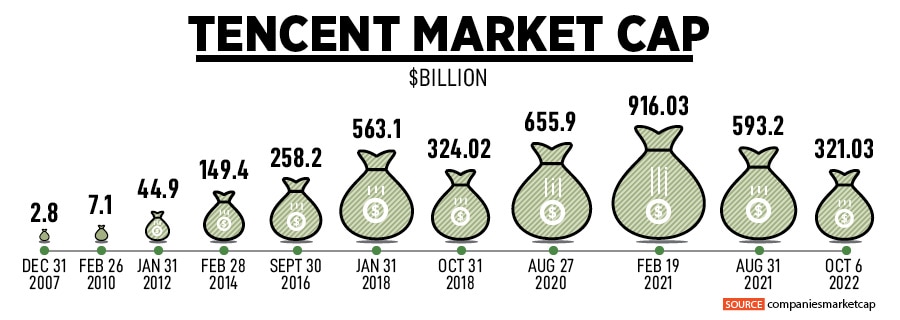
A $4.7-billion break-up: Prosus, BillDesk and Tencent
Did the gloomy shadow of China's second-most valuable company—Tencent—eclipse India's biggest M&A deal? Well, the dollars and cents seem to add up
 Bob Van Dijk, Group CEO of Naspers and Prosus
Bob Van Dijk, Group CEO of Naspers and Prosus
June 2022. It was a compelling question to ask. And the timing too seemed perfect. It had been close to a year—11 months to be precise--since Prosus, the Amsterdam-listed international investment arm of South African tech multinational Naspers, announced an all-cash $4.7 billion acquisition of BillDesk in August 2021. What was billed as India’s biggest fintech M&A deal was still awaiting the regulatory nod in India. The inordinate delay was unnerving. What, though, was most disconcerting was the financial aspect of the deal. “From a capital allocation standpoint,” Bank of America’s Cesar Tiron pointed out during the FY22 earnings call of Prosus in June this year, ”it doesn’t make sense to pursue the transaction, especially given changes to peers’ valuations since the transaction was announced.”
The analyst was merely joining the dots. A high rate of inflation, a rising interest rate, mounting concerns around an imminent global recession, the lingering aftereffects of the pandemic disrupting global supply chains and a protracted Ukraine-Russia war was not the best of scenarios and time to undertake massive mergers and acquisitions. Topping the chart, though, was a new global reality. Public and private markets had been in intense turmoil, and by the first half of last year, an estimated half a trillion dollars had been reportedly wiped off fintech valuations across the world. Clearly, the listed market was in a punishing mood for all tech companies, and the private counterpart was reeling under a fund crunch and economic uncertainties. Given the grim context, the larger question was: Did it still make sense to pursue BillDesk?
 The jittery query got a reassuring answer from Bob Van Dijk. “Yes, the markets have shown change,” acknowledged Group CEO of Naspers and Prosus. What, though, didn’t change was the basics. He listed out two of them: The business plan and the fundamentals that underpin the value creation that the buyout was supposed to bring. “It was not a multiple based story,” he underlined, continuing with his rationale. It (the deal) was a fundamental-driven business case with exceptionally strong synergies that are as solid today as they were then. “We have a very strong balance sheet,” he further stressed.
The jittery query got a reassuring answer from Bob Van Dijk. “Yes, the markets have shown change,” acknowledged Group CEO of Naspers and Prosus. What, though, didn’t change was the basics. He listed out two of them: The business plan and the fundamentals that underpin the value creation that the buyout was supposed to bring. “It was not a multiple based story,” he underlined, continuing with his rationale. It (the deal) was a fundamental-driven business case with exceptionally strong synergies that are as solid today as they were then. “We have a very strong balance sheet,” he further stressed.
The books indeed looked robust. The cash and cash equivalents for Prosus at end FY22 stood at $9,628 million as against $3,562 million in FY21. Though long-term liabilities stood at $15,861 million (almost double of $8,081 million in FY21), the current portion of long-term liabilities stood at only $188 million. Interestingly, the group has no debt maturities due until 2025, and 95 percent of its debt is reportedly due after five years and about 40 percent due after 10 years. Money, for sure, didn’t seem to be an issue to douse the fire of M&A. “If we want to do further M&A, we can do so. If we wanted to do even further M&A, we can also find ways to fund that,” the CEO asserted.
Laurent Le Moal chipped in to beef up the point made by the global head. “Indeed, the strategic rationale has not changed. In fact, it has been reinforced,” stressed the CEO of Prosus-owned PayU. Please remember, he underlined, that the proposed acquisition has been driven by the necessity to get to scale, increase the growth of the overall revenues and also significantly change the profit profile of the overall combined entity. “As of today, BillDesk continues to perform in line with our expectation,” he reiterated. “Therefore, we still continue to be very excited about the proposed combination of the two businesses.”




 Back in November 2021, three months after announcing the buyout deal, the bullishness was still visible. “We saw huge synergies with the BillDesk business,” Dijk pointed out in an interim results call in November last year. When the BillDesk transaction is approved, he continued, PayU will move from the middle of the pack in large payments providers to be a top 10 global payment provider. The combined TPV (total payments volume) of the business will be well over $100 billion, it will process more than 4 billion transactions annually, and will have more than 300 million transacting customers. “So we decided that this is actually an opportunity that’s too good to let go,” he concluded.
Back in November 2021, three months after announcing the buyout deal, the bullishness was still visible. “We saw huge synergies with the BillDesk business,” Dijk pointed out in an interim results call in November last year. When the BillDesk transaction is approved, he continued, PayU will move from the middle of the pack in large payments providers to be a top 10 global payment provider. The combined TPV (total payments volume) of the business will be well over $100 billion, it will process more than 4 billion transactions annually, and will have more than 300 million transacting customers. “So we decided that this is actually an opportunity that’s too good to let go,” he concluded. 




